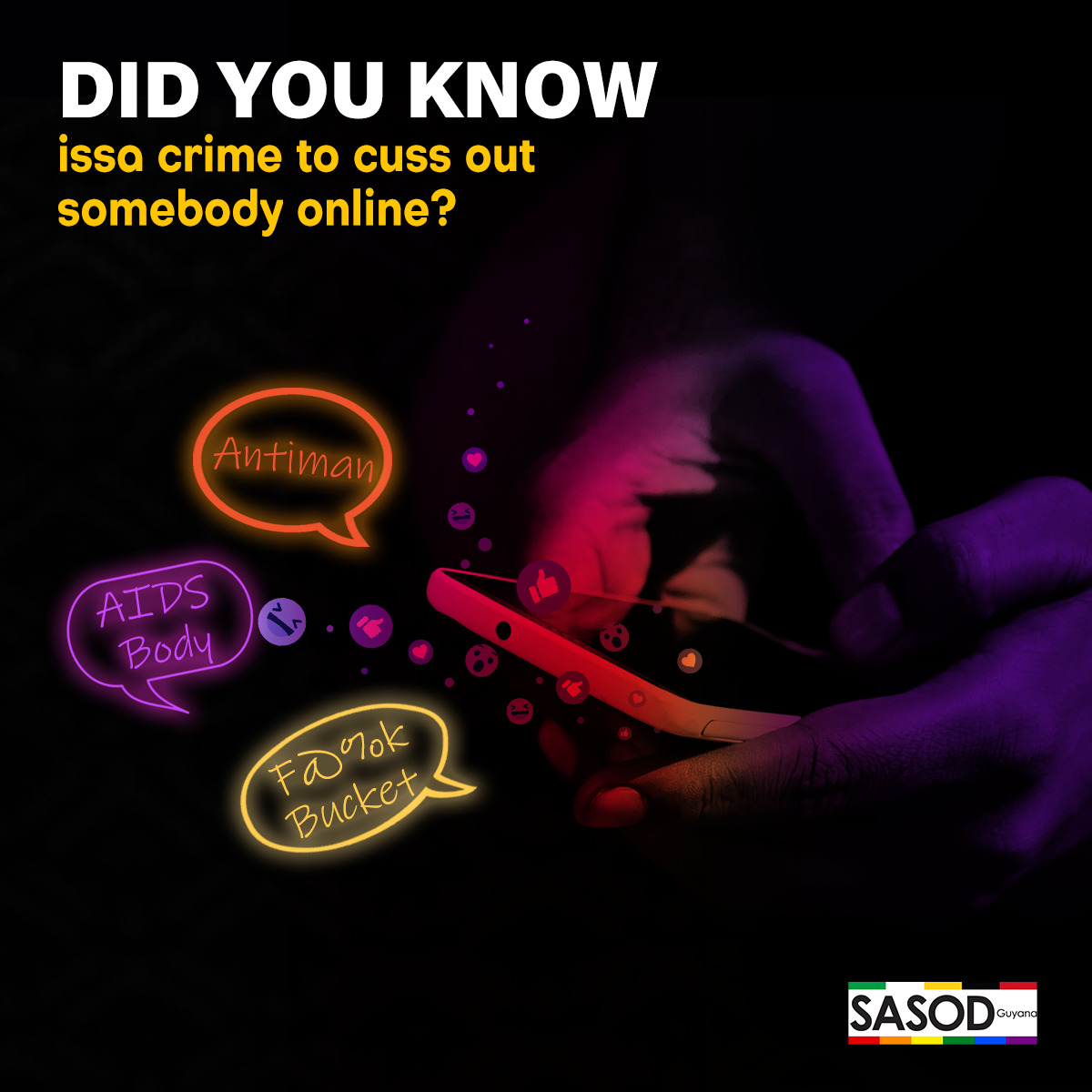
SASOD Guyana Pivots its Human Rights Response Online, Adapting to the COVID-19 Pandemic
Between April and September 2020, and amidst the height of the COVID-19 pandemic locally, the Society Against Sexual Orientation Discrimination (SASOD) Guyana has documented 30 cases in the Shared Incident Database (SID) with support from the Caribbean Vulnerable Communities Coalition (CVC) through the multi-country Caribbean Global Fund Grant, “Sustainability of Services for Key Populations in the Caribbean.” Among the documented cases, 30% involve cyber-bullying against women, girls, LGBTQ+ persons, Persons Living with HIV, and marginalised youth, as compared to 0 reported cases of cyber-bullying for the same period in 2019, under the SID project supported by CVC. Client intake, as well as counselling services, are now being done virtually to reduce the exposure risk to COVID-19. SASOD Guyana developed a protocol for virtual client intake and case management in keeping with the SID protocol, that was approved by CVC, considering the pandemic.
As at 31 October 2020, SASOD Guyana has resolved 70% of these 30 client cases for the 6-month period through referrals to pro-bono lawyers, filing and serving of restraining orders, seeking public assistance, land applications, securing emergency housing, permanent relocation, among other forms of redress.
In June 2020, SASOD Guyana launched a social media campaign dubbed #IssaCyberCrime to increase public knowledge on the Cyber Crime Act of Guyana, information on penalties for cyber offences, as well as support and access to justice for victims. This campaign, supported by the SID project, reached approximately 30,000 persons on social media between June and August 2020. Anecdotal evidence, especially feedback from new clients, indicates that this accessible form of human rights education allowed them to recognise cyber-crimes, know they are illegal and appreciate that redress and support services are available through SASOD Guyana. The campaign is especially critical since vulnerable populations find police processes very intimidating.
WHAT IS PANCAP?
PANCAP is a Caribbean regional partnership of governments, regional civil society organisations, regional institutions and organisations, bilateral and multilateral agencies and contributing donor partners established on 14 February 2001. PANCAP provides a structured and unified approach to the Caribbean’s response to the HIV epidemic, and coordinates the response through the Caribbean Regional Strategic Framework on HIV and AIDS to maximise efficient use of resources and increase impact, mobilise resources and build the capacity of partners.
What are the Global AIDS Strategy 2021–2026 targets and commitments?
If targets and commitments in the strategy are achieved:
- The number of people who newly acquire HIV will decrease from 1.7 million in 2019 to less than 370 000 by 2025
- The number of people dying from AIDS-related illnesses will decrease from 690 000 in 2019 to less than 250 000 in 2025.
- The goal of eliminating new HIV infections among children will see the number of new HIV infections drop from 150,000 in 2019 to less than 22,000 in 2025.
What are the 95-95-95 Targets for ending AIDS?
- 95% of People Living with HIV know their HIV status;
- 95% of people who know their status on treatment; and
- 95% of people on treatment with suppressed viral loads.
HELPFUL LINKS:
Global AIDS Strategy 2021–2026, End Inequalities, End AIDS
https://pancap.org/pancap-documents/global-aids-strategy-2021-2026-end-inequalities-end-aids/
Caribbean Regional Strategic Framework on HIV and AIDS (CRSF) 2019-2025
https://pancap.org/pancap-documents/caribbean-regional-strategic-framework-2019-2025/
